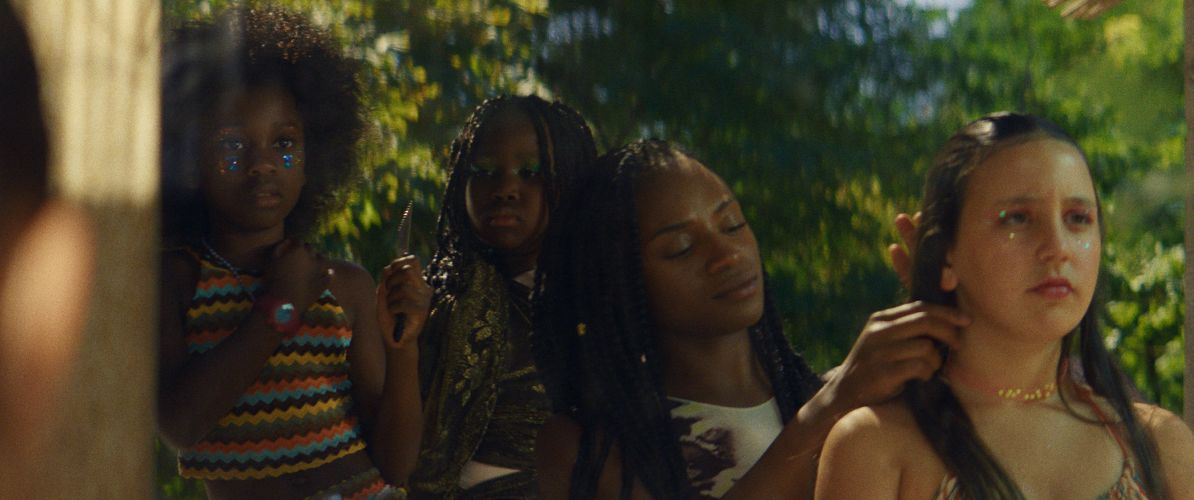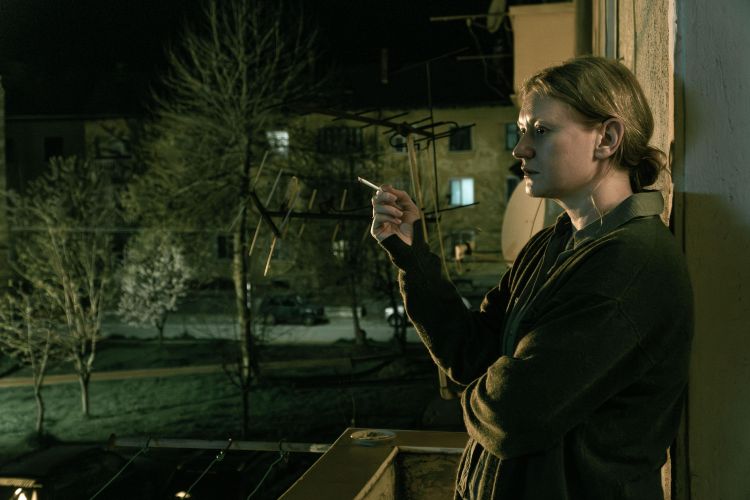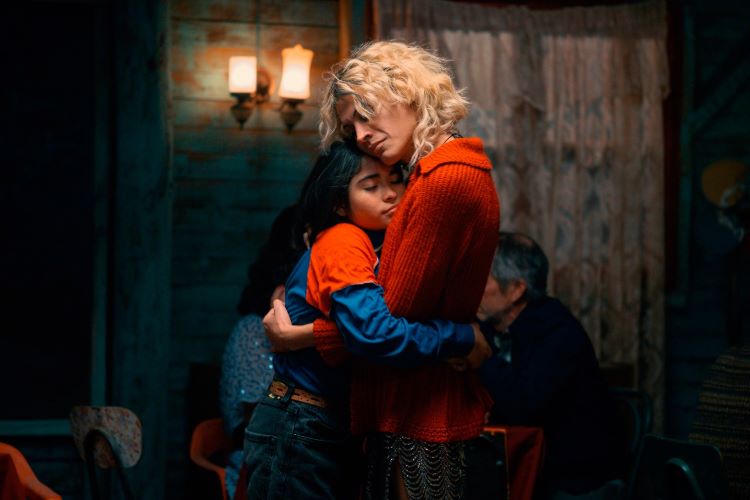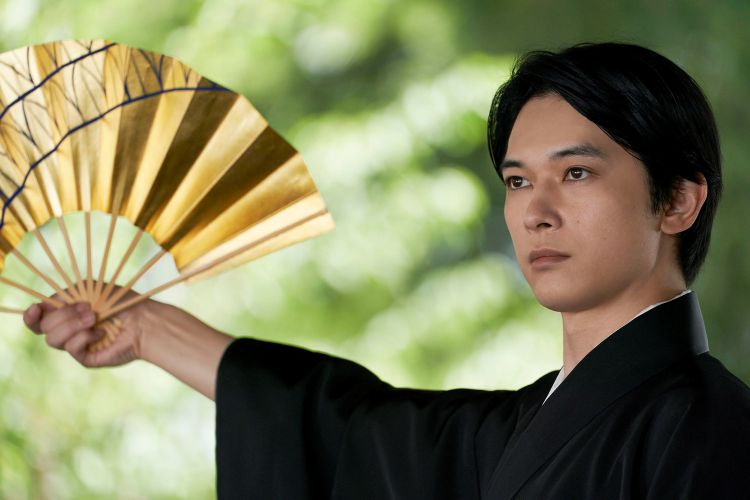Five films will hold their Israeli premiere at the Arava Film Festival taking place from November 12 – 22, 2025: The Mysterious Gaze of the Flamingo, directed by Diego Céspedes, which was awarded the Un Certain Regard award at Cannes; At Work, directed by Valérie Donzelli, awarded Best Screenplay at the Venice International Film Festival; Made in Eu, a pointed social drama by Bulgarian Director Stephan Komandarev; Summer Beats, a coming-of-age drama directed by Lise Akoka and Romane Gueret; and Kokuho, directed by Lee Sang-il, which has been selected to represent Japan at the Oscars. Here’s a look at four of the films:
Summer Beats

The directors Lise Akoka and Romane Gueret’s films reflect an affinity, knowledge, and empathy for young people growing up in the working-class neighborhoods of France. Their strong debut film, The Worst Ones, was awarded the Prix Un Certain Regard at the 2022 Cannes Film Festival. Summer Beats (original title Ma frère) covers similar territory, but with a more upbeat feel – perhaps because it focuses on a brief interlude, infused with the warmth of summer, the peaceful feeling of nature, the joys of swimming in the river, and the camaraderie of roasting marshmallows over a campfire. The film is based on Akoka and Gueret’s web series Tu préfères ?
The central protagonists are two good friends, Shai (Shirel Nataf) and Djeneba (Fanta Kebe). Both are 19 years old, Djeneba works at a day center for youth, while Shai still seems to be at loose ends, so when the opportunity arises to accompany the group on a camping trip, she is eager, if not quite pedagogically prepared, to join. Shai is Jewish, and in love with Ismael, who is Muslim, a relationship she hides from her controlling family. Djeneba has her own family issues to contend with – a one-year-old brother and a mother who disappears for hours, and even days at a time.
The children at the camp range in ages, some look around 7 or 8, while others are pre-adolescent. They come from a variety of ethnic backgrounds, as do the counselors, and there is an atmosphere of tolerance and acceptance at the camp. The ensemble cast of children are all delightful in the candor of their speech and the authenticity of their demeanor. Akoka and Gueret have somehow cracked the code of letting kids be kids onscreen, and it’s both entertaining and poignant. The counselors are all caring and supportive of the children, even as they struggle with their own individual issues.
Made in EU

Made in EU, directed by Stephan Komandarov (Blaga’s Lessons), exposes exploitation in the textile industry in Bulgaria, while exploring the social and political aspects of the COVID epidemic, as well as the role of media.
Iva (Gergana Pletnyova) is a middle-aged widow living in a small town in Bulgaria with her barely adult son Micho (Todor Kotsev). There are only two work options in this town: the mine, which presents obvious dangers, and the clothing factory where Iva works. The factory is owned by Mr. Mancini, an Italian businessman. Although working conditions and pay are abysmal, Iva has no real options. If she loses this job, she has no way to support herself and her son. Micho is trying to be a YouTube influencer, but his main goal is to leave Bulgaria and emigrate to Germany.
The women in the clothing factory work in sweatshop conditions, crowded together in one large, airless room. Half their income is considered a bonus, which they can only receive if they fulfill their quota and do not miss any workdays. When Iva falls ill with a cold and fever, the doctor refuses to give her sick leave, offering pills instead. Resigned to her situation and stoic, Iva continues coming to work despite her cold. Until the day she faints and is taken to the hospital.
Diagnosed with COVID, even though she is not the only factory worker who has been taken ill, the media identifies her as patient zero. When things go wrong, people tend to want to lay the blame somewhere, and Iva makes a convenient target. The entire town turns against her, and her only ally is Dr. Rusev (Ivaylo Hristov), who has come out of retirement to care for COVID patients. The alliance of corrupt politics and money comes into play, as does the ease with which people believe what they hear on television or the internet, and the way that fear can lead to violence.
The Mysterious Gaze of the Flamingo

Diego Céspedes’ debut feature also takes on the impact of an epidemic, the ability of fear to turn people against one another, and the power of compassion. The film is set in the Chilean desert in 1982, at a time when awareness of the AIDS epidemic was just beginning. First clinically reported in June 1981, AIDS was not identified as such by U.S. Centers for Disease Control and Prevention (CDC) until September 1982, and even then, not much was known about the disease and its transmission, resulting in ostracism and discrimination of people with HIV or AIDS. At the time, HIV/AIDS was considered a death sentence, in the remote desert mining town where the film takes place, this leads to rumors, superstition, and violence.
The focal point of the film is 11-year-old Lidia (Tamara Cortés), who, having been abandoned as an infant, was taken in by Flamingo (Matías Catalán) who lives outside the town with a chosen family of fellow transvestites (that is how they refer to themselves), led by Boa (Paula Dinamarca). The miners come to the women for evenings of entertainment on and off stage, but the disease has begun to spread, and rumors begin to fly.
Just on the cusp of adolescence, Lidia struggles to understand what is going on. When she is bullied by the boys from the town, her mothers all rally to avenge her, in a manner that plays on the town’s superstitions. Lidia finds a friend in Julio (Vicente Caballero), who tells her what he knows about the mystery of the gaze. In this inventive and unusual film, events evolve in unexpected ways, at times brutal and dark, and at other times, tenderness and compassion come from surprising sources.
Kokuho

The enthralling world of Kabuki Theatre is a central element in Kokuho, directed by Lee Sang-il, with exquisite cinematography by Sofian El Fani. The screenplay by Satoko Okudera is based on the eponymous novel by Shuichi Yoshida. The drama is a reflection on father-son relationships, traditions, and the close connection and rivalry between friends.
Hanjiro (Ken Watanabe), is a guest in the home of a Yakuza, when he is impressed by the talent of the Yakuza’s son, Kikuo (Soya Kurokawa) performing a female role in a Kabuki play. Following the murder of his father, 15-year-old Kikuo comes to live with Hanjiro and his family, to learn the art of Kabuki, particularly the role of onnagata – a male performing as a female. Hanjiro’s son Shunsuke (Keitatsu Koshiyama) is Kikuo’s age, and the two adolescents train together. Traditionally, Kabuki is passed on from father to son, but Kikuo’s striking talent and determination appear to surpass that of Shunsuke. They become close friends, yet they are also rivals.
An epic drama that encompasses 50 years, the film follows the development of their relationship and their art. The adult Kikuo is portrayed by Ryo Yoshizawa, and Shunsuke is portrayed by Ryusei Yokohama. Yet Kabuki itself is a central character in the film, with several scenes from plays. Although the scenes are brief, each is accompanied by subtitles that describe the main plot, so that audiences can understand the meaning and appreciate the art.





